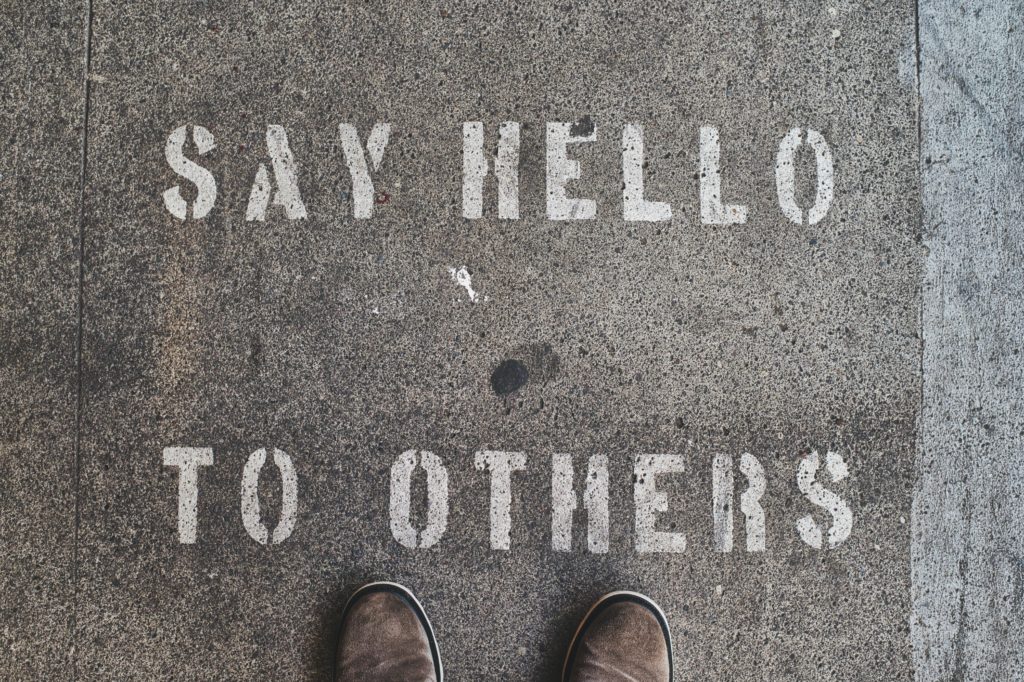5 Top Tips to A Positive Mindset

At Ovolo, we set the stage for Effortless Living. Our mission is Shiny Happy People All Around. That is what we want to see, everywhere. In recognition of R U OK Day this month and in celebration of World Mental Health Day approaching, we asked Ovolo’s Human Resources Director, Nicole Downs, to share her top tips to keeping a positive mindset. Acknowledging the elephant in the room, we’re in a pandemic, and maintaining a daily positive mindset is certainly easier said than done. However, we asked our happiest member of the group, Nicole, five questions surrounding the key to positive mindset to help make it a little easier.
1. Do you believe changing your mindset can change your day?

Developing a positive mindset affects everything about you. How do we get there though? It is by identifying what you can control, and that is only the present. We are human, so some days you are going to wake up tired from working and possibly home-schooling the kids during the lockdown, or mentally fatigued for those who remain in lockdown or worried about something that happened yesterday and or the future.
Whatever the worry is, you need to acknowledge it and look at ways to develop resilience within, understand what you can and can’t control (not to overthink – just do it), be your own true supporter – understand that you can, and you will be great (persevere), have patience (celebrate the small wins) and always be kind to yourself.
2. Do you have a morning routine that attributes to your positive mindset?

For me I need coffee before anything I do – that’s my vice. I also exercise when out of lockdown at 5 am as it sets the pace for my day. I also like to say good morning to all my people that work alongside me and also take the time to see how they are before looking at the task list I set for myself the evening before. To look after multiple people in differing countries, means I need to be organised and prioritise accordingly. Smiling, bounce in your step, and genuinely being happy to be there, as I love what I do, and I do it for our people.
3. What do you do when something gets you down?

For me, I disconnect by running/ walking by the sea. I feel a great synergy to the ocean, and I allow myself when exercising to clear the mind, breathe in the seawater, and tune out the world. I also tend to have my best ideas from doing this. It’s making sure you find the time to take just for yourself, whether that be ten minutes, 30 minutes, or however long it takes. Find something that empowers you and makes you feel good.
4. Is there anything in your day to day that challenges keeping a positive mindset?

Time can be challenging for everyone. Finding it and then lending enough time to reset. The trick is to understand that days will be different and to know that routines will change depending on other people or circumstances that surround you, and that’s ok. Just make sure that you reach out if this becomes too much to either your work and home family, or your go-to person, and/or maybe it’s your friends if you need that additional help. Everyone has asked for help at some point in their lives- it’s ok to do so. Take it one day at a time.
5. Overall, what would you say is the key to thinking positively during these challenging times?

Looking after your staff as part of your day-to-day business is one thing; taking care of them in a time of crisis means taking your wellbeing strategy to a whole new level. By having clear, transparent communication along with robust mental, wellbeing, and cultural strategy throughout for the business lends to all staff being able to think positively about their day-to-day happenings and for their future in and out of work. This is very important to me, the wellbeing of our staff.
Ovolo Group is working side by side with the Resilience Project which aims is to teach positive mental health strategies to help people become happier and more resilient. One key takeaway so far is to write three things that went well for you each day. This is a great start in reprogramming your brain to think of the good and not just on what hadn’t gone to plan and where you may worry more from.
